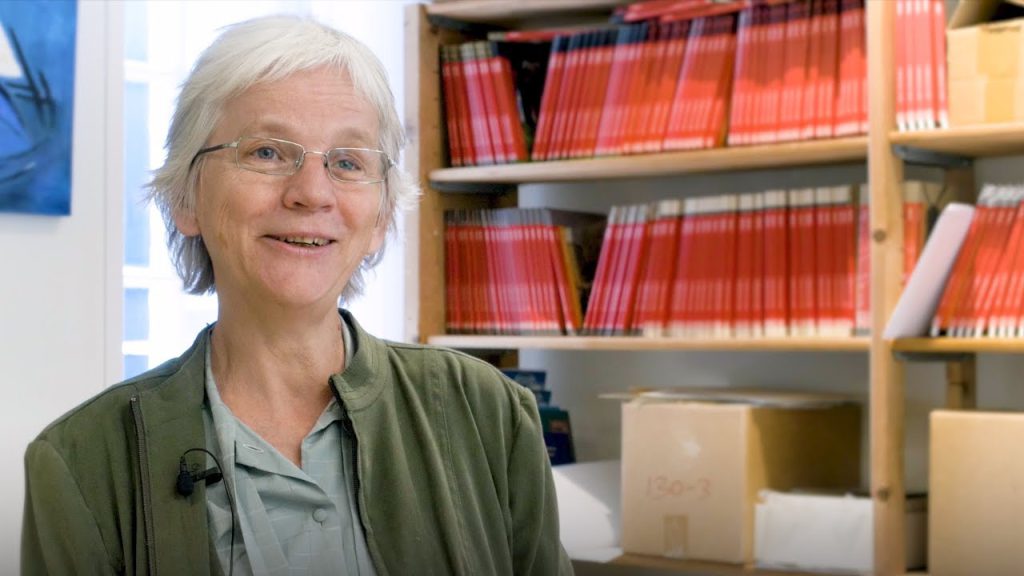In one of her English language classes about political history, professor Susan Legêne, who is also the dean of the faculty of Humanities, talked about the 19th century statesman Thorbecke, a very important figure in Dutch political history, in front of a mixed company of Dutch and international students. The latter protested: why should we know who Thorbecke is? What is his relevance for the political history of our own regions?”
This, she says, made her reflect on her position as a Dutch professor. She admits the limits to her knowledge in some of the fields within her own domain. “That’s why it is important to be open to other ways of knowing and why we need a more inclusive intellectual climate”, Legêne explains. “It means that we have to learn from each other and allow other knowledge to enrich ourselves. This requires inviting students and colleagues to contribute their own knowledge that some Dutch professors may not be very familiar with.”
Adapting to international students
The VU welcomes more international staff, researchers and students every year. This new and international audience is filling up the lecture rooms and professorship’s vacancies, which demands more inclusive and diversity-friendly policies and intellectual adaptations. As a dean, Legêne is aware of certain mechanisms of exclusion at the VU, she says. “Changing these mechanisms is necessary, building an international community at the VU implies changing policies and adapting to a different environment.”
‘Translating a PowerPoint presentation into English is not enough to create a more diverse and inclusive intellectual climate’
Bringing international students at Dutch universities implies rethinking what kind of content lecturers are reproducing to the international and diverse classrooms. “We can gain from a more diverse intellectual climate, which is not the same as improving inclusion. It implies we should not stick to how we have always done things. Translating a PowerPoint presentation into English is not enough to create a more diverse and inclusive intellectual climate. An English-language track for study programmes implies making some deep changes like shifting focusses and changing the curricula.”
Unfair disadvantage
The same goes for international members of the VU’s staff. Legêne has noticed that some people are isolated or excluded in the recruitment process for research and job vacancies. This is a result of the established policies at the university regarding the recruitment of international employees.
Take, for instance, the recruitment of PhD researchers. Often, the committees charged with their recruitment consist of men who prioritize male PhD candidates whose profiles resemble the committee’s own, preventing the staff from ever becoming more diverse. Changing the profile of committees like these may help to create a more inclusive and diverse recruitment apparatus.
The same goes for teaching vacancies. “When there is a vacancy for a professorship, all the faculties in the country are invited to come up with possible candidates”, Legêne explains. “This way they encourage their colleagues to choose people they already know.” Thus an unequal and unfair disadvantage is created for other qualified candidates to fill in the vacancy. A researcher or professional who comes from abroad is likely to have a small or no network in the country, leaving their chances to fill a vacancy close to nil. “So that’s also an important thing to change.”
More transparency
The hierarchical structure at the university is another obstacle. For some international employees this hierarchy is hard to grasp. “Some people at the VU are more entitled to do and say things than others”, Legêne says. “On the other hand, researchers might feel insecure and disoriented because of the freedom they’re given by their supervisors to fill in their work.”
‘For those who come from abroad it’s hard to understand this top-down approach’
It’s easier for those who are used to this Dutch semi-hierarchical system, and who know how it works, to navigate their way around it. But for those who come from abroad it’s hard to understand this top-down approach. They will find themselves in a position where security and safety in the working environment is lacking. “That’s why it is very important to make the system more transparent to the international staff.”
Moreover, offering international candidates part-time jobs is ridiculous, Legêne thinks. “For someone from abroad to come to Amsterdam on a part-time job, it’s ridiculous.” The professor tries to change this by offering full-time jobs to people coming from abroad especially to work at the VU. “But we do not always have the money for it, so our options are limited.”
